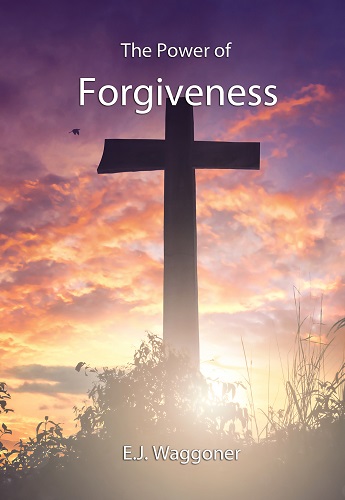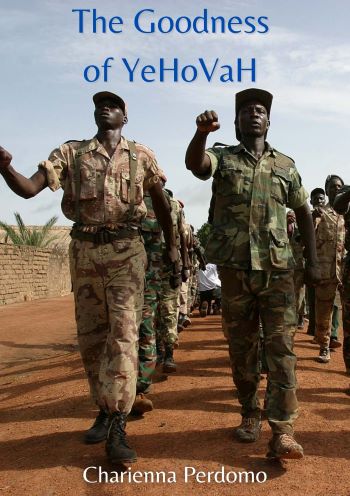For God so Loved the ______
Many Christians have used the fact that God has given man dominion over the earth (Gen. 1:26-28) as justification for being careless towards non-human creation. We can do with it as we please with no consequences in this view. Because of this neglect on the part of the majority of Christianity, some scholars have gone so far as to claim that modern Christianity is the main culprit for the world’s ecological crisis today. Lynn White, for example, claims that Christianity itself causes carelessness towards nature, since many modern Christians believe and teach that “no item in the physical creation had any purpose save to serve man’s purpose.”[1] This sentiment, however, is a gross overgeneralization of the religion of the Bible.
It is unfortunate that many people miss the ecological care expressed by Biblical authors. In fact, this is evident in the first chapter of the book of the Bible. In the beginning, God not only pronounced a blessing upon humans and the Sabbath, but also upon non-human creatures:
Genesis 1:22 And God blessed them [sea creatures and birds], saying, Be fruitful, and multiply, and fill the waters in the seas, and let fowl multiply in the earth.
Genesis 1:28 And God blessed them [human beings], and God said unto them, Be fruitful, and multiply, and replenish the earth…
Genesis 2:3 And God blessed the seventh day, and sanctified it: because that in it he had rested from all his work which God created and made.
The blessing pronounced upon the creation is as enduring as the blessing placed upon humankind and the Sabbath. The fact that God blesses His non-human creation should give us clues concerning our responsibility as image bearers of God.
“To the extent that self-concern is the reason for increased interest in the ‘environment,’ it misses the mark. There is a better reason to care for nature because the earth and non-human creation are under God’s blessing, ‘with the rights and privileges thereunto pertaining.’ From the point of view of the Bible, interest in non-human creatures and the earth is not motivated by an ecological state of emergency but by recognition of the dignity and rights of the rest of the created order. The ecological paradigm is too narrow… “The violation of non-human creation, perpetrated with impunity on an unprecedented scale, is oblivious to the intimate interdependence between human life and the rest of creation.”[2]
Indeed, we should take care of the environment, not to save ourselves, but because “the waters we pollute and the land we poison were created by the One who made, reconciles, and redeems us.”[3]
The blessing placed upon God’s non-human creation is not only referenced in passing in the creation narrative, but it is explicitly enshrined and immortalized in the fourth commandment.
Exodus 20:8–11 (NLT) 8 “Remember to observe the Sabbath day by keeping it holy. 9 You have six days each week for your ordinary work, 10 but the seventh day is a Sabbath day of rest dedicated to the Lord your God. On that day no one in your household may do any work. This includes you, your sons and daughters, your male and female servants, your livestock, and any foreigners living among you. 11 For in six days the Lord made the heavens, the earth, the sea, and everything in them; but on the seventh day he rested. That is why the Lord blessed the Sabbath day and set it apart as holy.
Thus, the Sabbath is a reminder that the less fortunate and even non-human creation has the right to dignity and rest—and this fact is inextricably bound up with the character of God that is preserved in the memorial of the seventh day but is lacking in Sunday (as it has no Biblical precedent, organic connection, or valid input to such discussions).
The fact that this commandment takes into consideration the well-being of even the non-human creatures reveals the heart of the Creator—He did not simply make the creation to be abused to satisfy our lusts, for He abhors animal suffering (Num. 22:23-33) and loves all His creation, not just mankind (Deut. 25:4; Ps. 36:9; 147:9). God’s love for animal life is evident from the fact that in Paradise restored, “The wolf and the lamb shall feed together, And the lion shall eat straw like the bullock… They shall not hurt nor destroy in all my holy mountain, saith the Lord.” Isaiah 65:25.
Proverbs 12:10 (NLT) The godly care for their animals, but the wicked are always cruel.
This same love for animals has yet to be reflected in the image bearers of God at large, as is evident from the abusive factory farming taking place in the West. How stark is the contrast between the God who feeds and looks after the sparrows (Matt. 6:26) from the factory farms which force chickens to live in abhorrent conditions for profit? Consider the plight of the egg producing battery hens:
“I am a battery hen. I live in a cage so small I cannot stretch my wings. I am forced to stand night and day on a sloping wire mesh floor that painfully cuts into my feet. The cage walls tear my feathers, forming blood blisters that never heal. The air is so full of ammonia that my lungs hurt and my eyes burn and I think I am going blind. As soon as I was born, a man grabbed me and sheared off part of my beak with a hot iron, and my little brothers were thrown into trash bags as useless alive. My mind is alert and my body is sensitive and I should have been richly feathered. In nature or even a farmyard I would have had sociable, cleansing dust baths with my flock mates, a need so strong that I perform ‘vacuum’ dust bathing on the wire floor of my cage. Free, I would have ranged my ancestral jungles and fields with my mates, devouring plants, earthworms, and insects from sunrise to dusk. I would have exercised my body and expressed my nature, and I would have given, and received, pleasure as a whole being. I am only a year old, but I am already a ‘spent hen.’ Humans, I wish I were dead, and soon I will be dead. Look for pieces of my wounded flesh wherever chicken pies and soups are sold.”[4]
Jeremiah 12:4 How long shall the land mourn, and the herbs of every field wither, for the wickedness of them that dwell therein? the beasts are consumed, and the birds; because they said, He shall not see our last end.
As Matthew Scully states, “factory farming isn’t just killing: It is negation, a complete denial of the animal as a living being with his or her own needs and nature. It is not the worst evil we can do, but it is the worst evil we can do to them.”[5]
What would be the result of manifesting the God-like interest, care, and compassion for the non-human creation? Susan Eastman, commenting on Paul’s statement that the non-human creation eagerly awaits the manifestation of the sons of God (Rom. 1:18-32), describes how God’s children could affect the world:
“As the children of God are redeemed by the gospel, they begin to regain a rightful dominion over the created world (Gen. 1.28-30; Ps. 8.5-8); in more modern terms, their altered lifestyle and revised ethics begin to restore the ecological system that had been thrown out of balance by wrongdoing ([Rom.] 1.18-32) and sin (Rom. 5-7).”[6]
What if, in protest of the cruel methods of factory farming, we sought to change the current agricultural system? The most direct way to change the current system is to change the way we spend our money—our consumer voting ballots. Notice the butterfly effect that could occur if we began to change the way we think about animals by looking at the way God cares about animals:
“If we are at all serious about ending factory farming, then the absolute least we can do is stop sending checks to the absolute worst abusers. For some, the decision to eschew factory-farmed products will be easy. For others, the decision will be a hard one. To those for whom it sounds like a hard decision (I would have counted myself in this group), the ultimate question is whether it is worth the inconvenience. We know, at least, that this decision will help prevent deforestation, curb global warming, reduce pollution, save oil reserves, lessen the burden on rural America, decrease human rights abuses, improve public health, and help eliminate the most systematic animal abuse in world history. What we don’t know, though, may be just as important. How would making such a decision change us?”[7]
Romans 8:19–22 19 For the earnest expectation of the creature waiteth for the manifestation of the sons of God. 20 For the creature was made subject to vanity, not willingly, but by reason of him who hath subjected the same, in hope, 21 because the creature itself also shall be delivered from the bondage of corruption into the glorious liberty of the children of God. 22 For we know that the whole creation groaneth and travaileth in pain together until now.
Yes, if we began to act more like the sons of our loving Father by being a blessing to all creation, then the earth will begin to truly heal, and “The mountains and the hills shall break forth before you into singing, And all the trees of the field shall clap their hands.” Is 55:12.
Isaiah 35:1–2 1 The wilderness and the solitary place shall be glad for them; And the desert shall rejoice, and blossom as the rose. 2 It shall blossom abundantly and rejoice Even with joy and singing: The glory of Lebanon shall be given unto it, The excellency of Carmel and Sharon, They shall see the glory of the Lord, And the excellency of our God.
Scripture is clear that our sins and cruelty have a direct effect on the earth (Gen. 6:12; Lev. 18:25-28; Is. 24:4-6), and we do not have to look far to find the evidence of this. In the book of Revelation we are explicitly told that those who have rejected the Spirit of God in the end are those who “destroy the earth” (Rev. 11:18).[8] The way to heal the world is not by compelling people through external legislation, as previous Popes have advocated, but it is by presenting the truth of God’s character, the nature of His laws, and the natural consequences of accepting or rejecting Christ—all of which is revealed in the cross of Christ. Once this has been clearly shown, everyone must be allowed the liberty to choose their side. We cannot compel the conscience, but we can try to convince the mind.
[1] Lynn White Jr., “The Historical Roots of Our Ecological Crisis,” Science, vol. 155 (1967), p. 1205; reprinted in Ecology and Religion in History, p. 15-31.
[2] Tonstad, The Lost Meaning of the Seventh Day, p. 390, 391.
[3] Kathryn Greene-McCreight, “Restless Until We Rest in God: The Fourth Commandment as Test Case in Christian ‘Plain Sense’ Interpretation,” in The Ten Commandments: The Reciprocity of Faithfulness, ed. William P. Brown (Louisville: Westminster John Know Press, 2004), p. 234-235.
[4] Carol J. Adams, “Thinking Like a Chicken,” United Poultry Concerns, http://tinyurl.com/y2ft2h9h.
[5] Matthew Scully, Dominion: The Power of Man, the Suffering of Animals, and the Call to Mercy (New York: St. Martin’s Press, 2002), p. 289.
[6] Susan Eastman, “Whose Apocalypse? The Identity of the Sons of God in Romans 8:19,” Journal of Biblical Literature, vol. 121, no. 2 (2002), p. 263-277.
[7] Jonathan Safran Foer, Eating Animals (Back Bay Books, 2010).
[8] To learn more about the effects of man has on nature and how the current path being trodden by the world is unsustainable, please see the book Dominion and Destiny: The Future of Man and the Earth, https://tinyurl.com/36dxk7c6.





